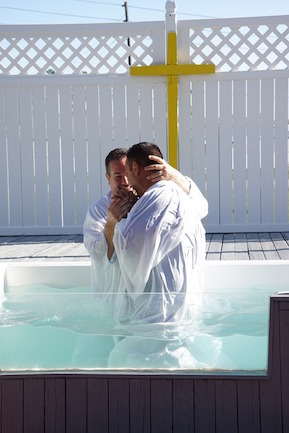WHY SO HARSH? by Adriel Sanchez for Core Christianity
In Matthew 23, Jesus Christ gives a rhetorical lashing to the scribes and Pharisees. His words are a scathing exposé of their hypocrisy. He calls them children of hell (v. 15), blind fools (v. 17), greedy and self-indulgent (v. 25), white-washed tombs (v. 27), and serpents (v. 33). So much for the gentle Jesus, meek and mild! Should Christians today ever follow Jesus’ example, and if so—when?
First, it’s important note that believers should not be generally characterized for having “tongues of fire” in the rhetorical sense! Several passages of Scripture make this clear:
- Ephesians 4:29, “Let no corrupting talk come out of your mouths, but only such as is good for building up, as fits the occasion, that it may give grace to those who hear.”
- Colossians 4:5–6, “Walk in wisdom toward outsiders, making the best use of the time. Let your speech always be gracious, seasoned with salt, so that you may know how you ought to answer each person.”
- 2 Timothy 2:24–26, “The Lord’s servant must not be quarrelsome but kind to everyone, able to teach, patiently enduring evil, correcting his opponents with gentleness. God may perhaps grant them repentance leading to a knowledge of the truth, and they may come to their senses and escape from the snare of the devil, after being captured by him to do his will.”
- Titus 3:1–2, “Remind them to be submissive to rulers and authorities, to be obedient, to be ready for every good work, to speak evil of no one, to avoid quarreling, to be gentle and to show perfect courtesy toward all people.”
- 1 Peter 3:15, “But in your hearts honor Christ the Lord as holy, always being prepared to make a defense to anyone who asks you for a reason for the hope that is in you; yet do it with gentleness and respect…”
Some brief commentary is in order: In 2 Timothy, the word translated “patiently” refers to a kind of tolerance in speech. Not tolerance in the way it’s often presented by society today (a religious pluralism that leaves no room for objective gospel truth), but a tolerance that “endures difficulties without becoming angry or upset.”[1] We don’t fly off the handle when wronged but instead speak with grace and gentleness. Commenting on this gentleness, the Theological Dictionary of the New Testament says, “When authorities or others ask for an account of the Christian life of faith, it is to be given with meekness and kindness, even though injustice which has been suffered might cause indignation or defiance, 1 Pet. 3:16.”[2]
Support Our Site

Now is your chance to support Gospel News Network.
We love helping others and believe that’s one of the reasons we are chosen as Ambassadors of the Kingdom, to serve God’s children. We look to the Greatest Commandment as our Powering force.
As a rule, we must be patient, gentle, gracious, and respectful in our speech. This is true when speaking to “outsiders,” i.e. the non-Christian world (Col. 4:5), and when addressing struggling sinners within the church (Gal. 6:1). When, then, is the kind of language Jesus used with the Pharisees called for?




